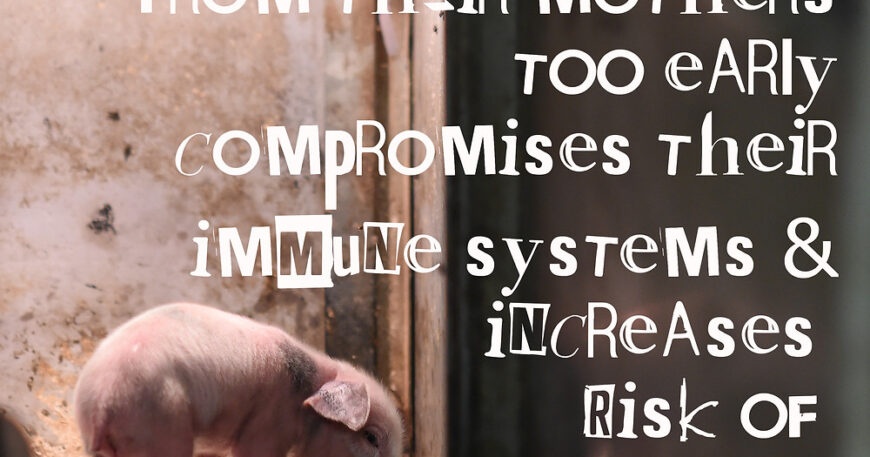Antibiotic resistance is now considered a global public health crisis. Some researchers are predicting that by 2050 our resistance to antibiotics will cause up to 10 million deaths every year, outdoing cancer as the leading cause of death worldwide.
Antibiotics are (over) used in farming and agriculture due to the intense farming processes that exist within the meat industry. The practice of animals being forced to live in confined, crowded spaces; not being given enough time to recover in-between births; and baby animals being taken away from their mothers too early places a strain on the animals’ health, compromises their immune systems, and increases the risk of disease transmission.
Due to this risk some countries use antibiotics as a preventive measure, meaning these medicines are given to animals as soon as they are born, whether they are ill or not. Other countries use antibiotics to make livestock animals grow faster, so that profit margins are increased.
So, what does this use of antibiotics in animals mean for our health? Remember that every time we use antibiotics (whether in humans or animals) we risk the development of drug-resistant bacteria (a superbug).
By using antibiotics in animals, even when they are not sick, we are adding to the risk of drug-resistant bacteria developing. Remember that saying ‘you are what you eat’? Because our health is closely linked with the health of our ecosystems, and the animals in it, the use of antibiotics in animals can affect humans as:
- Diseases can be shared between humans and animals through direct contact.
- We can consume antibiotic residues in meat – While research has currently not identified any direct impact of consuming antibiotic residues in meat (in terms of human health), there is the risk that antibiotic-resistant bacteria can develop in animals which can in turn transfer to humans and affect our health.
This is not to say we should stop using antibiotics altogether. Antibiotics are needed to protect the health of humans and animals, but should only be used when the animals are already sick. While the vast majority of antibiotic resistance is still caused by overuse in humans, researchers continue to acknowledge that the use of antibiotics in animal agriculture does pose a risk to human health.
Limiting antibiotic use in animals is therefore an important step in reducing the risk that antibiotic resistant bugs (that can ultimately affect our health) develop in the first place.




